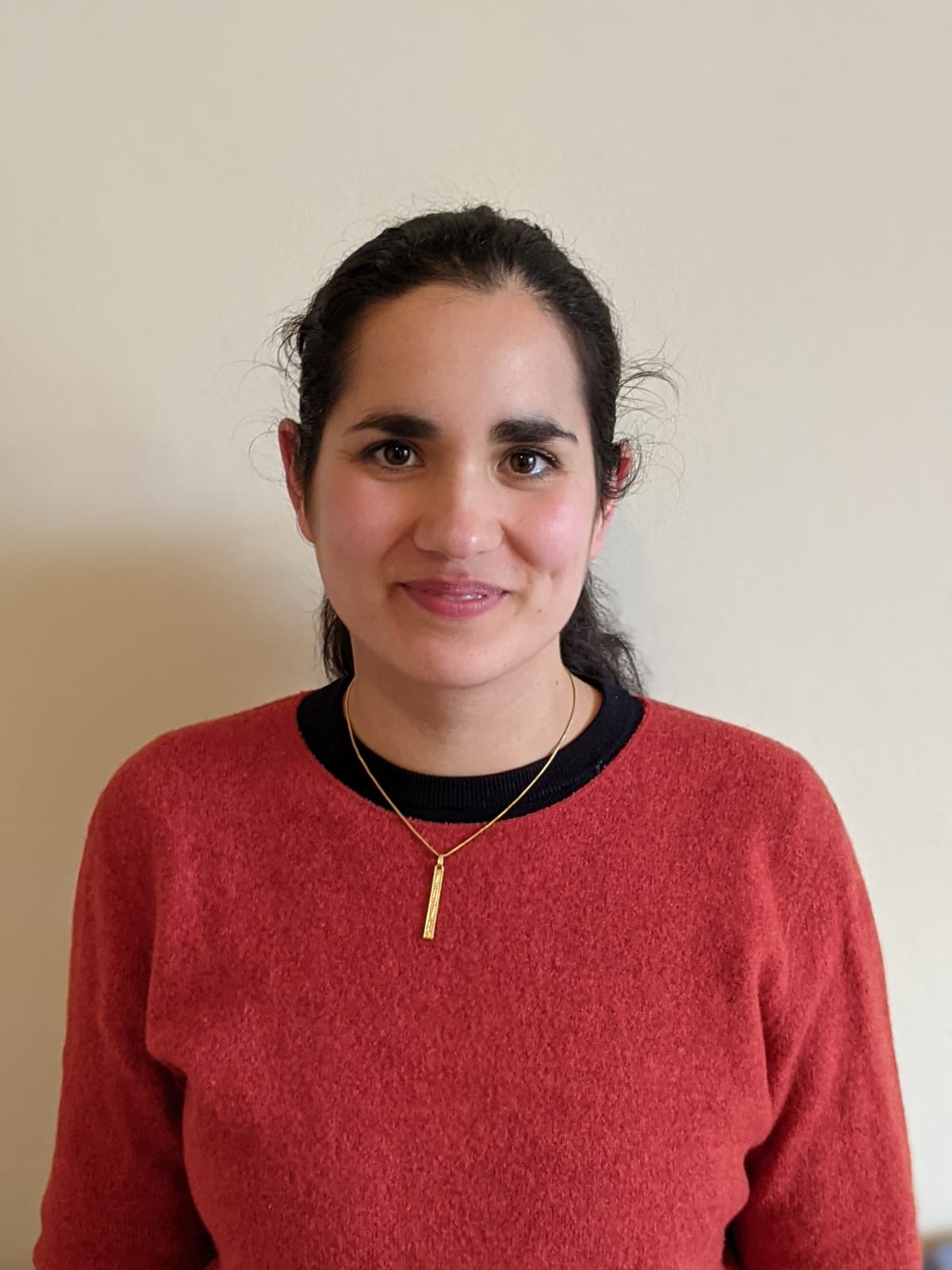Care that goes above and beyond
- Written by: Mona Vaghefian — CHAS — Policy and Public Affairs Manager
- Published: 31st March 2021

Mona Vaghefian, Policy and Public Affairs Manager at CHAS, covers the joint Hustings with Marie Curie earlier this month.
How do we ensure that everyone with palliative care needs receives “care that goes above and beyond”?
In March, CHAS and Marie Curie hosted a hustings on dying, death and bereavement.
The need to discuss these topics openly – and work towards improving the experiences of people living with a terminal or life-shortening condition – has never been more pressing. Marie Curie research has shown that by 2040, up to 10,000 more people will be living with and dying of a terminal illness, many of them with multiple health conditions. The latest Public Health Scotland research for Children in Scotland requiring Palliative Care (ChiSP) also shows that there are 16,700 babies, children and young people (aged 0-21) across Scotland who may die from a life-shortening condition – more than ever before.
The event was attended by a panel of politicians from each of the main parties, but it was bereaved mum Elizabeth Anne Holmes who struck right to the heart of the matter with her opening address.
Elizabeth Anne’s son Lee (this link will take you away from our website) – an active, footballing, go-kart racing boy – was aged just 12 years old when he was diagnosed with Burkitt Lymphoma. Lee was cared for during his final days at CHAS’ Robin House hospice in Balloch, and Elizabeth Anne described how the care the whole family received was “above and beyond”, describing how “the Robin House nursing staff met us and all our needs with open arms and a warm heart, and held us all together for as long as we needed them.”
During the hustings, Elizabeth Anne asked politicians how they could help ensure that everyone across Scotland has access to the best possible care at end of life, when and where they need it, including bereavement support for families after the death of a loved one.
This was a theme that threaded throughout the event, and led to a number of issues being discussed, including the following 5 key themes:
Sustainable funding for hospice services
Ensuring sustainable funding for third sector hospice care providers was something politicians across all parties unanimously supported. Hospices provide specialist palliative and end of life care across a range of settings, and the choice and care they offer needs to be adequately resourced.
A new national plan
With a previous strategy now come to an end, a new national plan for palliative and end of life care -that covers babies, children and young people as well as adults – was discussed. There was widespread agreement and support for such a plan.
Spotlight on social care
The importance of ensuring everyone is able to receive excellent quality care, irrespective of setting, was recognised by all. While there were some mixed views from panelists on the detail of the recommendations set out in the Scottish Government’s Independent Review of Adult Social Care, there was widespread agreement that national standards and fair pay and conditions are very important components for the future of social care in Scotland.
Better support for carers after bereavement
It was widely acknowledged that better support is needed after bereavement, particularly for family/ unpaid carers. Panelists expressed their support for extending Carers Allowance payments for carers following a bereavement from eight weeks to six months, with many noting that practical support for carers to re-join the workforce, including access to education and training, should be a priority – particularly for young carers.
Building back after the pandemic and public conversation around dying, death and bereavement
The panelists acknowledged that the pandemic has brought dying, death and bereavement to the forefront of society in a way previously unimaginable – while also recognising the role the third sector has played in adapting to support people and communities with flexible models of care. If we’re looking to build back better after the COVID-19 pandemic, however, a greater public openness about these issues, leading to greater choice and the right to a good death, will be important.
Thank you to all the candidates who took part in the hustings – Alex Cole-Hamilton (Scottish Liberal Democrats); Alison Johnstone (Scottish Greens); Donald Cameron (Scottish Conservatives); Fulton MacGregor (SNP) and Lewis MacDonald (Scottish Labour).
As one candidate noted, citing wording from the CHAS manifesto “When time is precious, you have to act fast. Let’s get it right, now”. It was heartening to see that there was significant political consensus across all the candidates, who acknowledged that this is an issue that transcends party lines and committed to working together in the next parliament to progress the issues raised. CHAS look forward to working with the next Scottish Government and Scottish Parliament to see these commitments delivered.
Read CHAS’ manifesto in full at CHAS.org.uk (this link will take you away from our website).
Read Mare Curie’s manifesto in full at mariecurie.org.uk (this link will take you away from our website). The charity is urging everyone to write to their local candidates ahead of the Scottish Parliament Election to ask them to sign a pledge to make palliative care a much higher priority for the next Scottish Government. Email your candidates at https://www.mariecurie.org.uk/scottishparliament (this link will take you away from our website).
End of page.
You may also like:
‘This is such a beautiful way to bring in an element that's vital to someone's happiness.’ Professional Care Partner.
Continue readingA lived experience perspective is needed to develop services and amplify the voices of unpaid carers of all ages in Highland.
Continue readingKelly Muir reflects on the barriers for people with no recourse to public funds when accessing the right to health.
Continue readingSelf Management Programme Manager Grace reflects on the fifteenth anniversary of Gaun Yersel, the Self Management Strategy for Scotland.
Continue readingAutomated reminder emails to users have started, following the most recent technical improvements to ALISS.
Continue readingFor many the nightmare of Long Covid is something they live with every day.
Continue readingPromoting rights awareness through accessible information and the voice of lived experience.
Continue readingThe third sector’s economic contribution and development seems to be too often overlooked.
Continue readingDigital Assistant Director, Chris Mackie reflects how the lack of an appropriate sticker led to the destruction of medical records.
Continue reading"Because no one put a sticker on them."
Continue readingWhy it matters to you to participate in the public consultation on 'A draft outline Charter of Rights for People Affected by Substance Use'.
Continue readingDr Tony Robertson reflects on how we make the right to health a reality for everyone.
Continue readingOver 12 million people live with Congenital Heart Disease globally with a population of 20,000 in Scotland.
Continue readingRory Chapman (Development Officer) reflects on the What Matters to You National Networking Event
Continue readingGiving unique insights into individual's lives, experiences, needs, and sense of character.
Continue readingReflections on a Self Management Reflective Practice (SMRP) session, from a Chest Heart & Stroke Scotland Advice and Support Practitioner.
Continue readingLucy highlights some ALLIANCE human rights activity from this year and to mark Human Rights Day 2023.
Continue readingChief Executive of Scottish Care, Donald Macaskill, critically reflects on the Winter Preparedness Plan.
Continue readingCalum reflects on the Community Partnership Conference 2023 in Inverness, which was built on trusting relationships and partnership working.
Continue readingSelf Management Network Scotland members Foundation for Positive Mental Health on how their free app can help with workforce wellbeing.
Continue readingHannah Tweed asks, “what next?” and calls for action from Scottish Government on the findings of the National Audiology Review.
Continue reading"Modern football clubs have a responsibility to engage with and take care of the communities they represent".
Continue readingMark Ballard outlines writes that it is time for the Scottish Government to act on the National Audiology Review
Continue readingCalum reflects on the Design HOPES launch event and the value that the third sector can add to the potentially world-leading project.
Continue readingSenior Development Officer for the Children and Young People Programme reflects on the current nature of funding in the sector.
Continue reading
